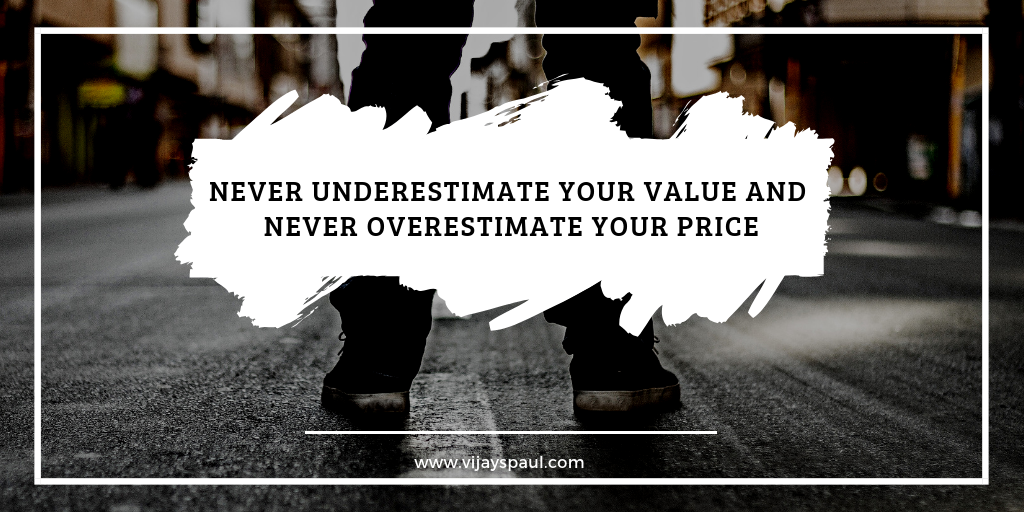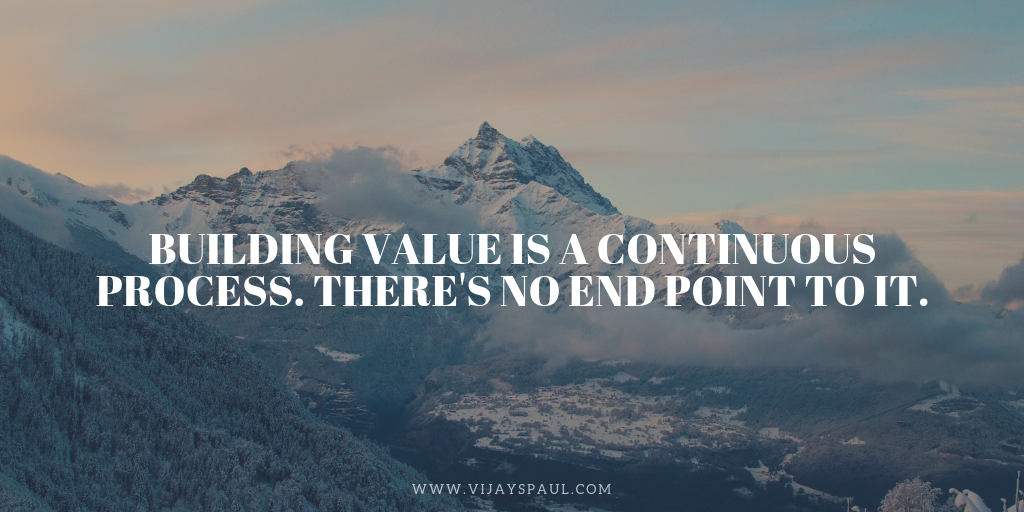Price is what you pay; value is what you get.
Warren Buffet
Read it again.
And now let the meaning sink in.
How many times have you thought of the difference between value and price? How many times have you considered them to be the same?
If I sell you a new iPhone for $2000, you’ll never say yes to the deal. Why? Because you see the price to be much higher compared to the value you feel you’d get out of it.
But let’s say I am ready to pay you $2000 for your present phone which you’re using, without you being able to keep a backup of the files in it. Would you agree?
Again no.
Why? Because in this case, the perceived value of your phone (along with all the information and memories in it in the form of digital data) is seen as much higher than the price am willing to pay for it.
And these basics apply to every transaction in life – whether you’re buying something from your local grocery shop, whether it’s the new tuxedo you saw on offer or even if you’re negotiating the salary for your new job.
What the organization pays you is the price they’re “buying” you for, with the goal of extracting more value from you. And from your end, the price you agree on is the price you believe you’re worth, for the value addition you’re giving to them.
And always keep that in mind.
Understand your value and your price in the market, for the skills that you bring forth. Never underestimate your value and never overestimate your price. Make sure both of them lie in a balance.
Price is arbitrary. Value is fundamental.
Assign a qualitative estimate to your price and a quantitative estimate to your value. The qualitative estimate of your price is your value and the quantitative estimate of your value is your price.
How do I find my value?
There is no single black and white answer to this. It either comes with enough experience and understanding of self, or with the right advice from the right people.
But one of the best metric for this would be retrospection.
- How do you evaluate yourself as compared to your peers?
- How do you define success? How near are you to the top?
- According to “the world’s definition of success”, are you successful? If yes, by how much. If no, how higher up the ladder are you?
- How much time do you spend in learning and bettering yourself?
- How have your skills improved over the past X months/years?
- Do you compare yourself of today to the self of yesterday? Do you actually see growth?
- What is your attitude towards growth and learning?
- Are you satisfied with what you’ve achieved? If no, what are you doing to better yourself? If yes, why are you even reading this article?
- Are you continuously the best version of yourself you can be today?
Answer these questions truthfully. Are you satisfied with the answers? If no, work towards bettering the answers for yourself.
Building value is a continuous process. There’s no end point to it.
How do I find my price?
This one is rather easy. All you need to do is check out job listings on Indeed, Linkedin, Seek or similar job listing websites and see the “price” various organizations are willing to pay for someone of your skillset.
Take an average of the various “prices” you see and that would be close to your “price in the industry“.
Now, this is just a tentative number. If you actually, or even closely enough are able to understand your value, then this price would change. The price would be what you want it to be.
And that’s the goal all of us should have. Determine your own price, with a strong understanding of your value.

